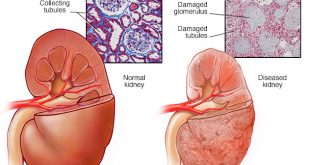The good news is chronic kidney disease (CKD) female patients can have and do have children. However, the ability to become pregnant tends to decline as kidney function is lost due to low levels of the hormones that control egg production. Women with advanced kidney disease often do not ovulate, which means the eggs are not released from the ovary and therefore, cannot be fertilized.
The likelihood that a patient with CKD will be able to have children decreases with the severity of the kidney disease. The National Kidney Foundation has divided CKD into five stages. For women with CKD Stage 4 and 5, the likelihood of conception is low but not impossible. Please consult your doctor regarding the staging of your individual kidney disease.
| Stage of CKD | GFR(ml/min/1.73 m2 |
| 1 | > 90 with evidence of kidney damage |
| 2 | 60-89 with evidence of kidney damage |
| 3 | 30-59 |
| 4 | 15-29 |
| 5 | < 15 |
Women with CKD Stage 1 and Stage 2 usually can have children without problems during and after pregnancy. However, her blood pressure should also well-controlled with minimal protein in the urine. Generally, there is no long-term effect on the woman’s kidney function. This good outcome does not apply to women with uncontrolled blood pressure and certain conditions such as systemic lupus erythematosus (SLE), scleroderma and polyarteritis nodosa. They should consult their doctor prior pregnancy.
For women with advanced stages of CKD, the decision to proceed with a pregnancy is individualized. Pregnancy adds stress to even the healthy kidneys. Diseased kidneys adapt poorly to the demands of pregnancy. We need to consider the following :-
- Will the pregnancy be complicated?
Once CKD patients become pregnant, more than 50- 80% may develop hypertension (high blood pressure) in pregnancy or worsen of blood pressure control in those with pre-existing hypertension. Uncontrolled high blood pressure is the major risk for pregnant CKD women. Major risks of hypertension in pregnancy are a premature separation of the placenta, pre-eclampsia (“toxic” condition) and/or eclampsia (convulsions). These conditions can potentially be life-threatening to the mother and baby .
The kidney function of the mother may get worse during pregnancy. In extreme cases dialysis may need to be started to enable the unborn baby to grow. Another common complication in pregnancy is the urinary tract infection
- Will the baby be healthy?
Hypertension is a major cause of prematurity (due to poor blood supply to the baby via the placenta). Premature babies have low birth weight and some are small for gestational age. Premature babies have immature lungs and are unable to breathe on their own.
| Neonatal intensive care unit |
Most of these babies need to be admitted to the neonatal intensive care unit.
- Is there any long-term harm to the mother’s kidney function?
Long –term harm to the mother’s kidney function is possible. Women who become pregnant with serum creatinine values above 120-130 ?mol/l have an increased risk of accelerated decline in kidney function during pregnancy. This may persist after delivery. Women with higher serum creatinine before pregnancy have a higher risk of worsening of kidney function and some may become dialysis dependent after pregnancy.
Women with CKD Stage 5 on dialysis
For women with CKD Stage 5 on dialysis, pregnancy is rare but not impossible. If a woman on dialysis becomes pregnant, she has a high risk of miscarriage. Pregnancy in women on dialysis is usually complicated.
To increase the chance of a successful outcome, women on dialysis who become pregnant will need close monitoring and special care from a multidisciplinary team consisting of kidney specialists, obstetricians, paediatricians ( child health specialists) and dieticians.
| Last Reviewed | : | 12 September 2013 |
| Writer | : | Dr. Liew Yew Fong |
| Accreditor | : | Dr. Sharmini Diana a/p Parampalan |
 PENDIDIKAN PESAKIT Kementerian Kesihatan Malaysia
PENDIDIKAN PESAKIT Kementerian Kesihatan Malaysia
